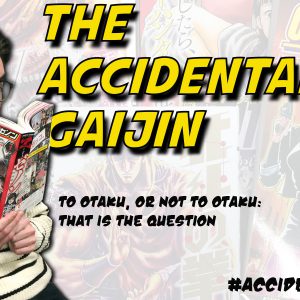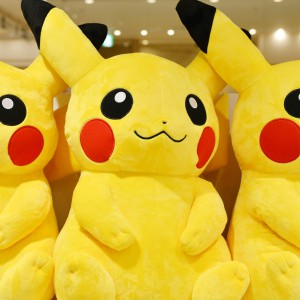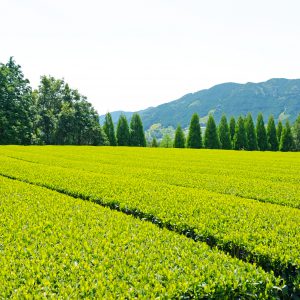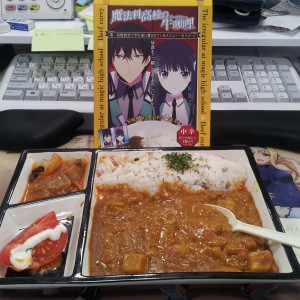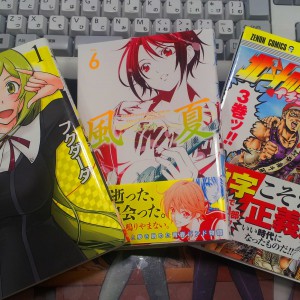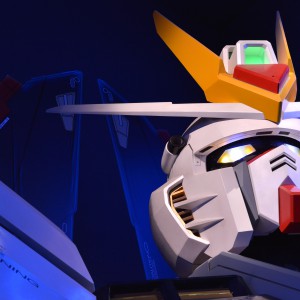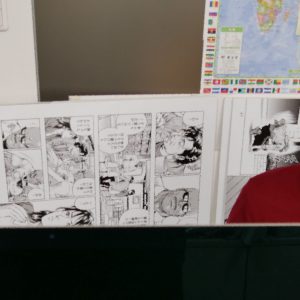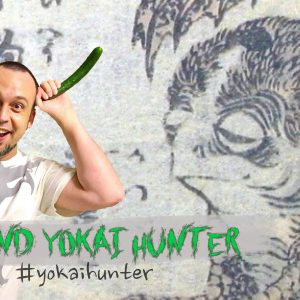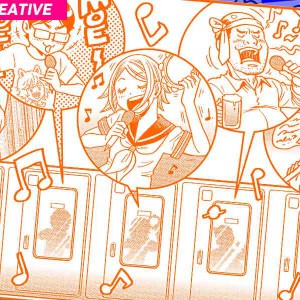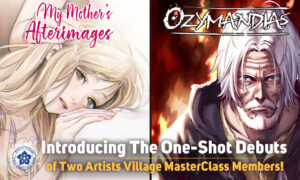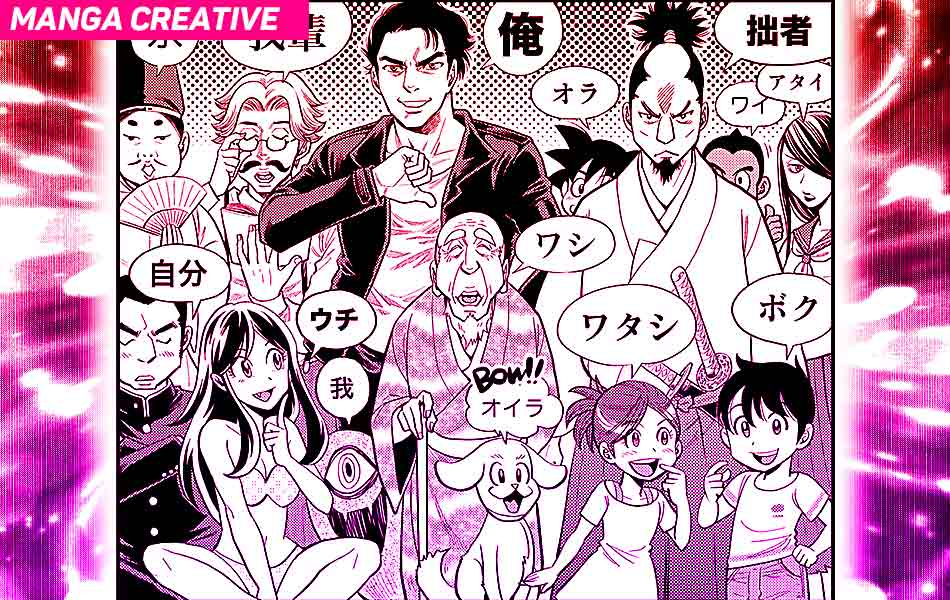
Whether you’re formally studying Japanese, or whether you’ve just picked up a few words while watching anime, the one thing that really surprises English speakers is how many ways there are to say “I” (It makes English seem a rather boring language by comparison, doesn’t it?)
The “I” that a Japanese speaker might use depends on a number of factors, such as their gender, personality, dialect and who they’re talking to. And when you’re writing dialogue for manga, this is becomes part of the character’s flavor! (and one of the first casualties to be lost in translation…)
Today, I’m going to introduce some different ways to say “I” in Japanese, and the kind of characters that are likely to use them. For visual reference, please take a look at this one panel manga by Yamazaki-sensei:
 わたし(watashi): Possibly the most neutral, straightforward expression. You can probably find this in your Japanese textbook! An even more polite version is “watakushi”. Both of these might be used by a polite character, or a character on-the-job.
俺 (ore): You hear this one fairly often, both in real-life and in anime. It sounds masculine, so it’s mainly used by men. Especially tough manly men. For example, most of the cast of Fist of the North Star refer to themselves as “ore”.
僕 (boku): Another one often heard in both real-life and in anime. Although also used by men, it comes across as a lot more boy-ish and humble than “ore”.
あたし (atashi): A more casual form of “watashi”. This is often used by women in more casual situations.
あたい (atai): An even more casual form of “atashi”. This is often used by really flippant or “bad” girls who don’t care what people think of them. An example would be Ichiko, the biker girl from the movie Kamikaze Girls.
自分 (jibun) In standard Japanese, this is also used as “oneself”. It’s often used by athletic or stoic guys. Brock in Pokemon usually uses “ore”, but when hitting on the ladies, he sometimes switches to “jibun” (trying to appeal as an athletic guy?) To make things even more confusing, in western Japan, this can also be used as “you”.
ワシ (washi): This one is usually used by old men characters. A great choice for sages or hermits. For example: Master Roshi in Dragonball Z uses “washi”.
うち (uchi): Used often by women in Kansai (Western Japan).
拙者 (sessha): No longer used in daily life. This “I” is a humble expression, associated with samurai. Kenshin from Rurouni Kenshin refers to himself as “sessha”.
我 (ware): “Ware” is a rather old expression, that is no longer in use today. Used to give a character an “ancient” feel. Great for immortals or monsters!
我輩 (Wagahai): Another older expression, no longer used today. It sounds rather grand and sonorous, so in manga it’s often used by (somewhat arrogant) sophisticated gentlemen.
オイラ (oira): This one makes you sound like a country bumpkin. Alternatively, it’s also used for animals in cute pictures (Much like the way we give animals grammatically incorrect cute voices in English)
(One’s own name): Instead of one of the above, small children often say their own name. If anyone older than a toddler does this, they’re walking a fine line between “cute” and “trying too hard”!
And there are even more! Isn’t it sad that they all revert to “I” in the English versions? Such detail is lost! Discovering each character’s unique way of talking is one of the joys of reading manga in Japanese.
You might thing all this emphasis on “I” means that the Japanese are quite arrogant, but it’s just the opposite! When they choose their wording, they’re considering their relationship with the person they’re talking to, and how they want to be perceived! Now, that is a rich language!
[catlist name=”LOST AND FOUND” thumbnail=”yes” thumbnail_size=160 content=”no” date=”yes” dateformat=”M j, Y G:i” template=page_list]
わたし(watashi): Possibly the most neutral, straightforward expression. You can probably find this in your Japanese textbook! An even more polite version is “watakushi”. Both of these might be used by a polite character, or a character on-the-job.
俺 (ore): You hear this one fairly often, both in real-life and in anime. It sounds masculine, so it’s mainly used by men. Especially tough manly men. For example, most of the cast of Fist of the North Star refer to themselves as “ore”.
僕 (boku): Another one often heard in both real-life and in anime. Although also used by men, it comes across as a lot more boy-ish and humble than “ore”.
あたし (atashi): A more casual form of “watashi”. This is often used by women in more casual situations.
あたい (atai): An even more casual form of “atashi”. This is often used by really flippant or “bad” girls who don’t care what people think of them. An example would be Ichiko, the biker girl from the movie Kamikaze Girls.
自分 (jibun) In standard Japanese, this is also used as “oneself”. It’s often used by athletic or stoic guys. Brock in Pokemon usually uses “ore”, but when hitting on the ladies, he sometimes switches to “jibun” (trying to appeal as an athletic guy?) To make things even more confusing, in western Japan, this can also be used as “you”.
ワシ (washi): This one is usually used by old men characters. A great choice for sages or hermits. For example: Master Roshi in Dragonball Z uses “washi”.
うち (uchi): Used often by women in Kansai (Western Japan).
拙者 (sessha): No longer used in daily life. This “I” is a humble expression, associated with samurai. Kenshin from Rurouni Kenshin refers to himself as “sessha”.
我 (ware): “Ware” is a rather old expression, that is no longer in use today. Used to give a character an “ancient” feel. Great for immortals or monsters!
我輩 (Wagahai): Another older expression, no longer used today. It sounds rather grand and sonorous, so in manga it’s often used by (somewhat arrogant) sophisticated gentlemen.
オイラ (oira): This one makes you sound like a country bumpkin. Alternatively, it’s also used for animals in cute pictures (Much like the way we give animals grammatically incorrect cute voices in English)
(One’s own name): Instead of one of the above, small children often say their own name. If anyone older than a toddler does this, they’re walking a fine line between “cute” and “trying too hard”!
And there are even more! Isn’t it sad that they all revert to “I” in the English versions? Such detail is lost! Discovering each character’s unique way of talking is one of the joys of reading manga in Japanese.
You might thing all this emphasis on “I” means that the Japanese are quite arrogant, but it’s just the opposite! When they choose their wording, they’re considering their relationship with the person they’re talking to, and how they want to be perceived! Now, that is a rich language!
[catlist name=”LOST AND FOUND” thumbnail=”yes” thumbnail_size=160 content=”no” date=”yes” dateformat=”M j, Y G:i” template=page_list]
 わたし(watashi): Possibly the most neutral, straightforward expression. You can probably find this in your Japanese textbook! An even more polite version is “watakushi”. Both of these might be used by a polite character, or a character on-the-job.
俺 (ore): You hear this one fairly often, both in real-life and in anime. It sounds masculine, so it’s mainly used by men. Especially tough manly men. For example, most of the cast of Fist of the North Star refer to themselves as “ore”.
僕 (boku): Another one often heard in both real-life and in anime. Although also used by men, it comes across as a lot more boy-ish and humble than “ore”.
あたし (atashi): A more casual form of “watashi”. This is often used by women in more casual situations.
あたい (atai): An even more casual form of “atashi”. This is often used by really flippant or “bad” girls who don’t care what people think of them. An example would be Ichiko, the biker girl from the movie Kamikaze Girls.
自分 (jibun) In standard Japanese, this is also used as “oneself”. It’s often used by athletic or stoic guys. Brock in Pokemon usually uses “ore”, but when hitting on the ladies, he sometimes switches to “jibun” (trying to appeal as an athletic guy?) To make things even more confusing, in western Japan, this can also be used as “you”.
ワシ (washi): This one is usually used by old men characters. A great choice for sages or hermits. For example: Master Roshi in Dragonball Z uses “washi”.
うち (uchi): Used often by women in Kansai (Western Japan).
拙者 (sessha): No longer used in daily life. This “I” is a humble expression, associated with samurai. Kenshin from Rurouni Kenshin refers to himself as “sessha”.
我 (ware): “Ware” is a rather old expression, that is no longer in use today. Used to give a character an “ancient” feel. Great for immortals or monsters!
我輩 (Wagahai): Another older expression, no longer used today. It sounds rather grand and sonorous, so in manga it’s often used by (somewhat arrogant) sophisticated gentlemen.
オイラ (oira): This one makes you sound like a country bumpkin. Alternatively, it’s also used for animals in cute pictures (Much like the way we give animals grammatically incorrect cute voices in English)
(One’s own name): Instead of one of the above, small children often say their own name. If anyone older than a toddler does this, they’re walking a fine line between “cute” and “trying too hard”!
And there are even more! Isn’t it sad that they all revert to “I” in the English versions? Such detail is lost! Discovering each character’s unique way of talking is one of the joys of reading manga in Japanese.
You might thing all this emphasis on “I” means that the Japanese are quite arrogant, but it’s just the opposite! When they choose their wording, they’re considering their relationship with the person they’re talking to, and how they want to be perceived! Now, that is a rich language!
[catlist name=”LOST AND FOUND” thumbnail=”yes” thumbnail_size=160 content=”no” date=”yes” dateformat=”M j, Y G:i” template=page_list]
わたし(watashi): Possibly the most neutral, straightforward expression. You can probably find this in your Japanese textbook! An even more polite version is “watakushi”. Both of these might be used by a polite character, or a character on-the-job.
俺 (ore): You hear this one fairly often, both in real-life and in anime. It sounds masculine, so it’s mainly used by men. Especially tough manly men. For example, most of the cast of Fist of the North Star refer to themselves as “ore”.
僕 (boku): Another one often heard in both real-life and in anime. Although also used by men, it comes across as a lot more boy-ish and humble than “ore”.
あたし (atashi): A more casual form of “watashi”. This is often used by women in more casual situations.
あたい (atai): An even more casual form of “atashi”. This is often used by really flippant or “bad” girls who don’t care what people think of them. An example would be Ichiko, the biker girl from the movie Kamikaze Girls.
自分 (jibun) In standard Japanese, this is also used as “oneself”. It’s often used by athletic or stoic guys. Brock in Pokemon usually uses “ore”, but when hitting on the ladies, he sometimes switches to “jibun” (trying to appeal as an athletic guy?) To make things even more confusing, in western Japan, this can also be used as “you”.
ワシ (washi): This one is usually used by old men characters. A great choice for sages or hermits. For example: Master Roshi in Dragonball Z uses “washi”.
うち (uchi): Used often by women in Kansai (Western Japan).
拙者 (sessha): No longer used in daily life. This “I” is a humble expression, associated with samurai. Kenshin from Rurouni Kenshin refers to himself as “sessha”.
我 (ware): “Ware” is a rather old expression, that is no longer in use today. Used to give a character an “ancient” feel. Great for immortals or monsters!
我輩 (Wagahai): Another older expression, no longer used today. It sounds rather grand and sonorous, so in manga it’s often used by (somewhat arrogant) sophisticated gentlemen.
オイラ (oira): This one makes you sound like a country bumpkin. Alternatively, it’s also used for animals in cute pictures (Much like the way we give animals grammatically incorrect cute voices in English)
(One’s own name): Instead of one of the above, small children often say their own name. If anyone older than a toddler does this, they’re walking a fine line between “cute” and “trying too hard”!
And there are even more! Isn’t it sad that they all revert to “I” in the English versions? Such detail is lost! Discovering each character’s unique way of talking is one of the joys of reading manga in Japanese.
You might thing all this emphasis on “I” means that the Japanese are quite arrogant, but it’s just the opposite! When they choose their wording, they’re considering their relationship with the person they’re talking to, and how they want to be perceived! Now, that is a rich language!
[catlist name=”LOST AND FOUND” thumbnail=”yes” thumbnail_size=160 content=”no” date=”yes” dateformat=”M j, Y G:i” template=page_list] 




